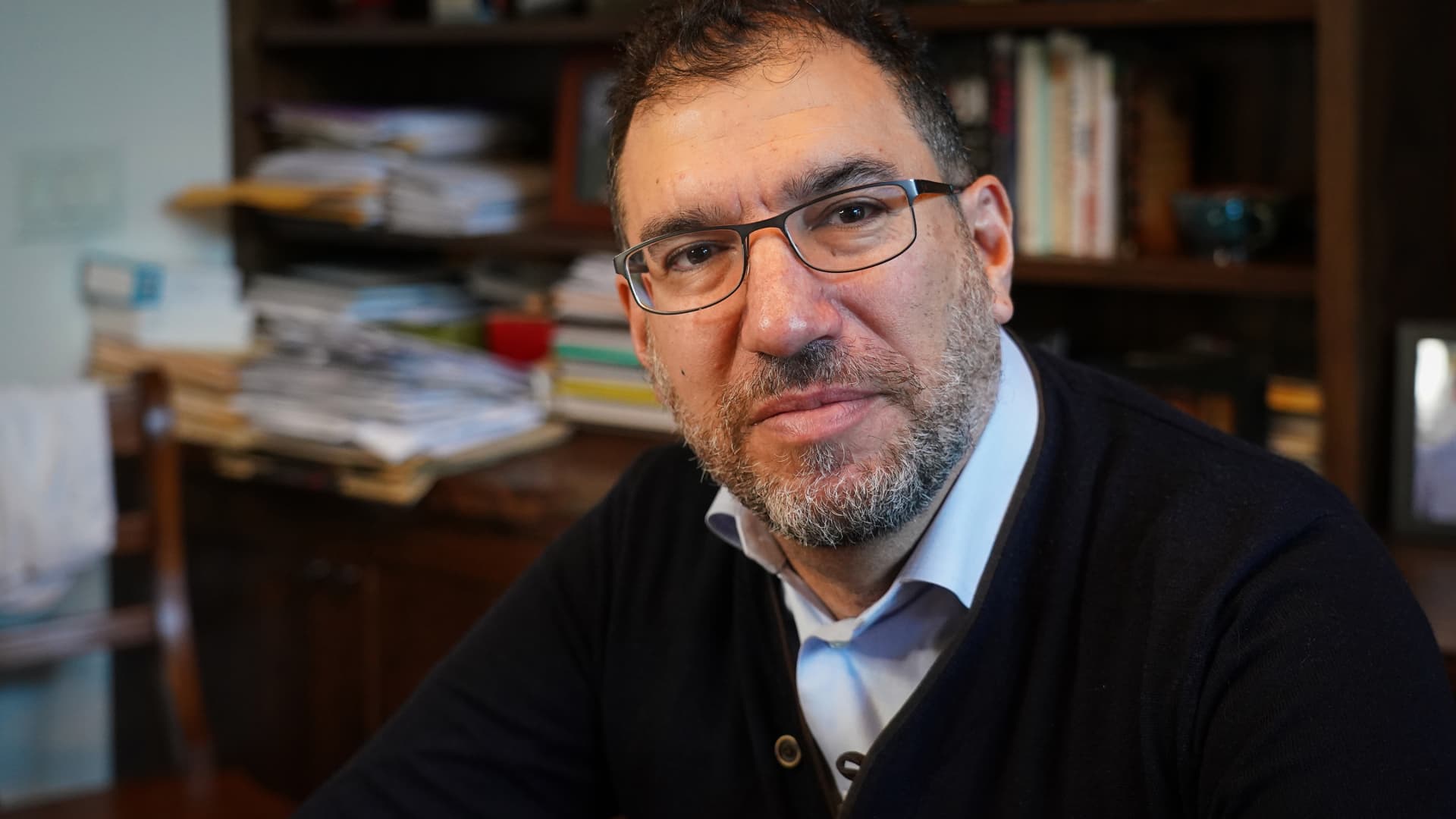
- Biden's prediction that the U.S. could return to normal by next Christmas is "reasonable," according to an advisor on the president's COVID-19 response team.
- Andy Slavitt said that there are still plenty of unknowns, including what will happen with the new, emerging variants of the virus and whether enough Americans will take a COVID-19 vaccine.
- "There's a lot we don't know about the future," he told The Washington Post.

President Joe Biden's prediction that the United States could return to some semblance of normalcy by Christmas is "a reasonable answer," a senior advisor on the president's COVID-19 response team said Thursday.
During a CNN town hall on Tuesday, Biden said the U.S. will be "in a very different circumstance, God willing" by Christmas. "A year from now, I think that there'll be significantly fewer people having to be socially distanced, having to wear a mask," he added. "I don't want to overpromise anything here."
White House Covid adviser Andy Slavitt said he's reluctant to give a timeline for when things could return to normal, warning there are still plenty of unknowns. The biggest issues that could undermine efforts to contain the virus are new, emerging variants as well as vaccine hesitancy in the U.S. and elsewhere.
"There's a lot we don't know about the future," Slavitt said during a virtual interview Thursday with Washington Post opinion writer Jonathan Capehart. "We are trying not to give a false sense of security or a false sense of precision when none exists. And I know that makes people less comfortable, but I also know people want to be leveled with and they want to be told the truth."
Get Tri-state area news delivered to your inbox. Sign up for NBC New York's News Headlines newsletter.
Slavitt's comment comes as U.S. health officials, including White House medical advisor Dr. Anthony Fauci, are pushing Americans to get vaccinated as quickly as possible before potentially new and even more dangerous variants of the virus emerge.
Money Report
As of Tuesday, the Centers for Disease Control and Prevention has identified 1,277 cases of the B.1.1.7 variant first identified in the U.K. The agency has identified 19 cases of the B.1.351 strain from South Africa as well as three cases of P.1, a variant first identified in Brazil.
The U.S. needs to rapidly deploy Covid-19 vaccines and ramp up its genetic sequencing of variants before the virus can mutate again and make the pandemic even worse, CDC Director Dr. Rochelle Walensky wrote in a research opinion published in the Journal of the American Medical Association, or JAMA.
Roughly 40 million out of some 331 million Americans have received at least their first dose of Pfizer's or Moderna's two-dose Covid-19 vaccines, according to data compiled by the CDC. And 15.4 million of those people have already gotten their second shot. The goal, according to Fauci, is to vaccinate between 70% and 85% of the U.S. population — or roughly 232 million to 281 million people — to achieve herd immunity and suppress the pandemic.
On Tuesday, White House press secretary Jen Psaki announced that the Biden administration was increasing the number of Covid-19 vaccine doses shipped to states weekly, sending out 13.5 million shots this week and doubling the number going to retail pharmacies.
Slavitt said Thursday that Pfizer, Moderna and other drugmakers have told the Biden administration they plan to update their vaccines to protect against the new variants.
He also said that there are still many Americans who are "vaccine curious," or hesitant, and are waiting for others to take it first. He urged people who are unsure about getting a vaccine to speak with people in the community they trust, including doctors and church leaders.
"We think more and more people will come on," he said.






